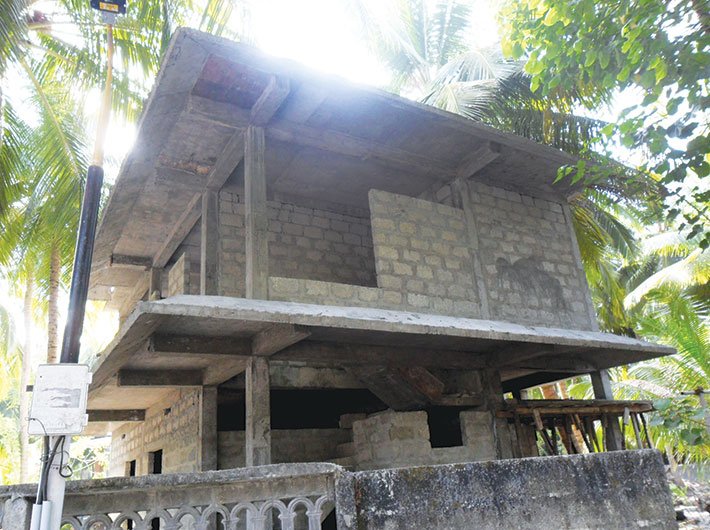Building your own house in Lakshadweep is not the same as building it on the mainland as construction materials such as cement and bricks are not available on the islands but have to be sourced from Kochi. If the citizens were to bring it in themselves the transportation cost would be unaffordable. To prevent the citizens from being burdened with such costs, the Lakshadweep administration procures the materials from Kochi and provides them at mainland rates, effectively taking the burden of transportation cost on itself.
For availing this facility, the citizens just have to apply online through the centralised citizen application and material management system (CAMS) of the Lakshadweep building development board (LBDB). The below poverty line (BPL) citizens of the main island are given the first priority, followed by the BPL citizens of other islands (Lakshadweep is a group of islands). Third in the priority list are above poverty line (APL) citizens of the island, and then the APL citizens of other islands.
Different concessions are given to women and old-age citizens. The application allows citizens to apply online, while the software prepares the merit list on a transparent basis. It also helps in the distribution of construction material on a timely basis.
Evolution of CAMS
The biggest issue for the building board was to create the merit list of citizens in a transparent manner. “We needed to streamline the process of distributing the building materials to citizens in a timely manner,” said Pranjal Hazarika, director IT, administration of Lakshadweep. Admitting paper applications, creation of a merit list and subsequently managing payments of the citizens were difficult without a centralised system. The citizens were also unable to find out the status of their applications. Tracking the functioning of contractors was also not possible and was dependent on the checks done by the department.
CAMS enables the department to create the merit list of applicants for material distribution through an automated process, thereby reducing human intervention and making the allocation procedure more transparent. Since the software captures the information of the building material distributed under the scheme, the application also helps the department monitor the functioning of contractors as well as the inventory of existing material by mapping it against the distribution data.
This helps in reducing the probability of pilferage. It also enables the island administration improve the turn-around time for material distribution. “By reducing the time taken for a customer to procure building material, CAMS helps in the implementation of the citizen’s charter in the service delivery model,” said Hazarika.
Behind the scenes
The project was implemented by the Lakshadweep IT services society (LITSS) along with the state e-mission team (SeMT), who were involved in the business process re-engineering (BPR) and monitoring of the project implementation by Payoda Technologies. Since the solution has a citizen-centric online front-end, the application enables people to apply for building and construction materials at their own convenience, at the click of the mouse from anywhere.
To avail the services, applicants have to submit copy of their photograph, ration card, nativity certificate, NPR/UID Card (not mandatory as of now), land diversion certificate, land ownership certificate and building plan. The applications received before the 16th of every month are processed in the same month. After the cut-off date, the sub-divisional officer and technical officer review the applications and a merit list is prepared of all the applicants. The applicants receive SMS at every stage of their application. The selected ones receive an SMS from the department to make a payment through bank challan. Finally, the technical officer informs the date of material distribution to citizens through SMS so that they can collect the building material allocated to them.
Happy citizens, happy administration
With CAMS citizens do not have to go to the LBDB office. Having got rid of physical files, the application processing time has been reduced from three months to 25 days. With data of every application available, monitoring of suppliers is also possible. Data consolidation has also become easy with automatic report generation about each aspect of the disbursal process. Citizens are also better informed about their requests as they get regular updates of the movement of their application through email and SMS.
Low bandwidth, however, ails all e-governance initiatives in the islands. Despite the limitations of bandwidth, the department has big plans for the project. It is in talks with NSDL Database Management Limited (NDML) to integrate an online payment system with the CAMS application. Once integrated, the process of applying for building materials would be further simplified. This would enable citizens to make payments online through their debit or credit cards. “The integration should be complete by this year, after which the citizens would be able to pay for the construction material online,” said Hazarika.
The story first appeared in Magazine Vol 05 Issue 12(16-31 July 2014)

